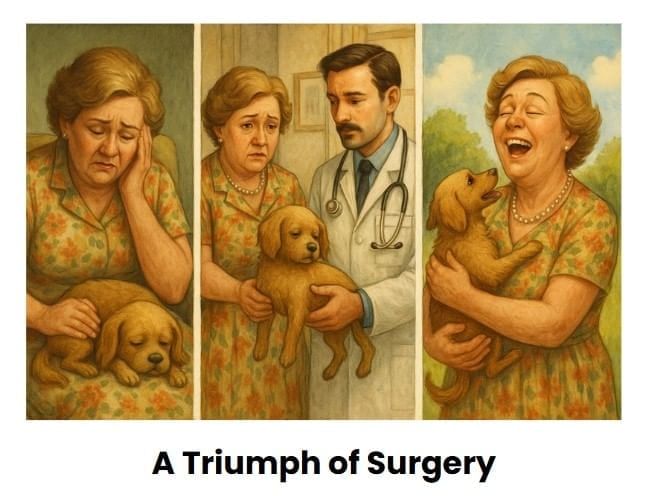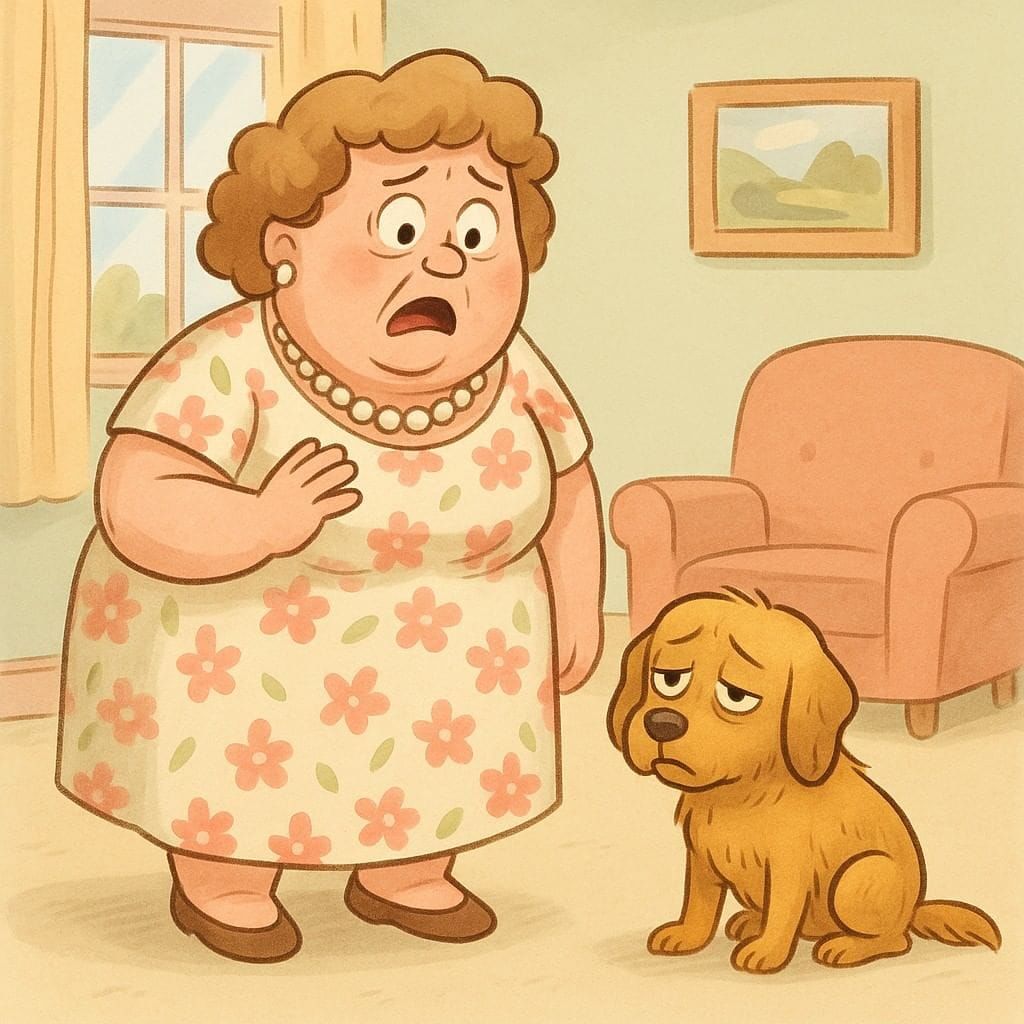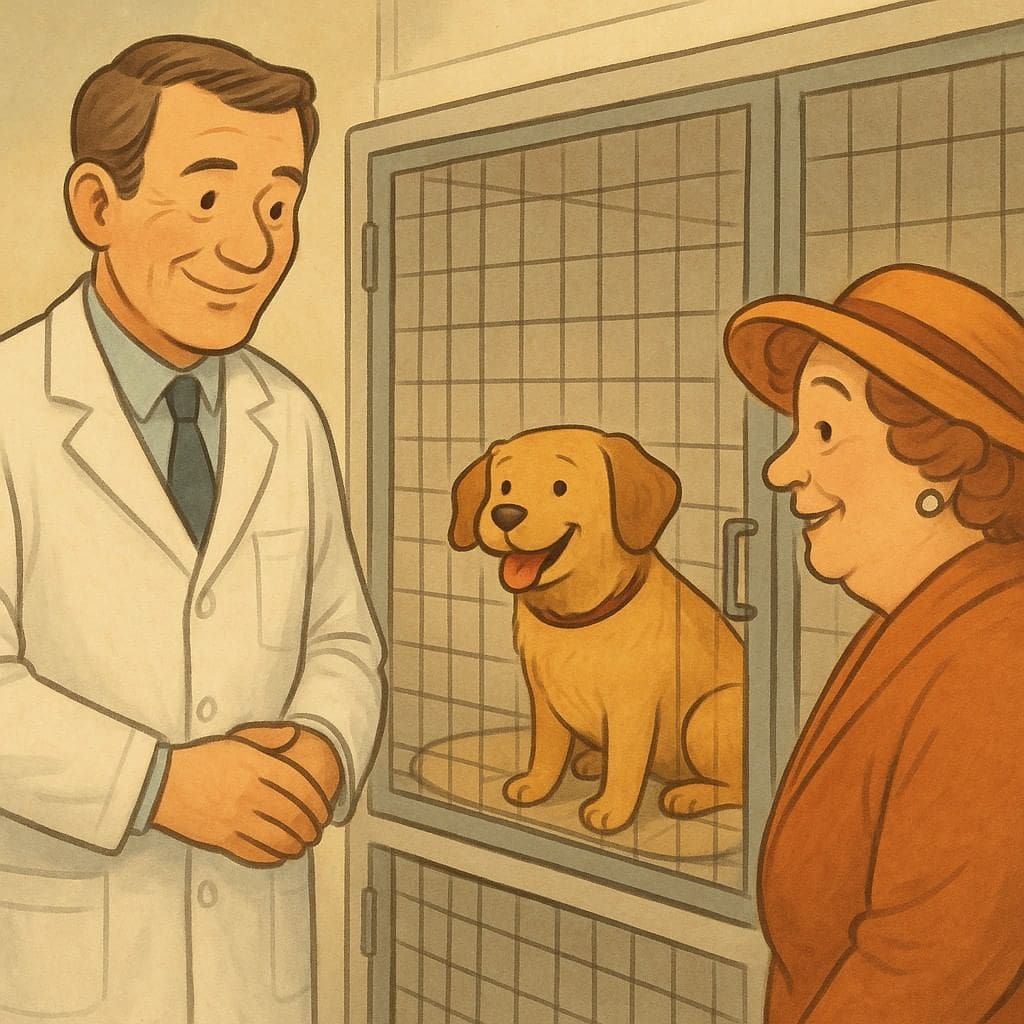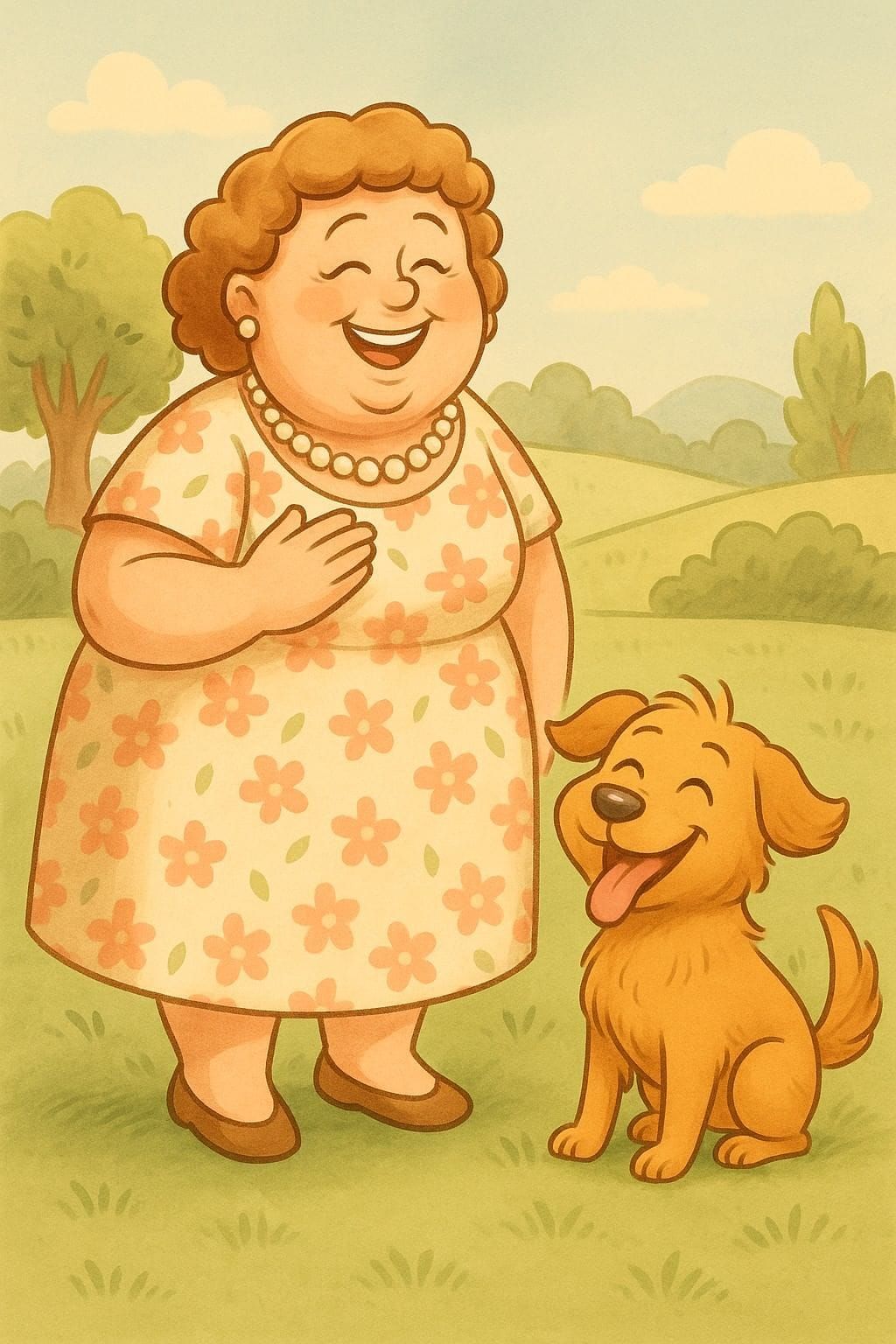Class 10 English Chapter 1 Question Answers - A Triumph of Surgery

Q1. What was Mrs. Pumphrey’s reaction when Tricki showed little enthusiasm for exertion?
Ans: Mrs. Pumphrey was both shocked and worried when Tricki displayed little enthusiasm for exertion. She feared he was seriously ill and suspected he was suffering from malnutrition.
Q2. Which two suggestions did Dr. Herriot give to Mrs. Pumphrey at the initial stage? Did she follow?
Ans: Dr. Herriot suggested that Mrs. Pumphrey reduce the amount of sweet food given to Tricki and provide him with more exercise. However, she found it challenging to follow these recommendations, as she struggled to deny Tricki his favourite treats.
Q3. What was Mrs. Pumphrey’s reaction when the doctor said that Tricki must be taken to the hospital for a fortnight?
Ans: When the doctor told Mrs. Pumphrey that Tricki needed to be taken to the hospital for a fortnight, she was almost in shock. She feared that Tricki would pine and die if he did not see her every day.
Q4. Why did Mr. Herriot ask Mrs. Pumphrey to admit Tricki in a hospital?
Ans: Dr. Herriot advised Mrs. Pumphrey to admit Tricki to a hospital because she was overindulging him. Instead of reducing his food and encouraging exercise, her pampering resulted in Tricki developing serious health issues. Hospitalisation was necessary for his recovery.

Q5. What does she do to help him? Is she wise in this?
Ans: She calls the doctor to help Tricki, which is a wise decision. The doctor advises that Tricki should be hospitalised for proper care. Although she feels upset and cries, she ultimately agrees to let the dog go with the doctor.
Q6. What was the real disease that Tricki was suffering from?
Ans: Tricki did not have a physical disease. His vomiting resulted from being overfed by his owner. Additionally, he was quite lazy and lacked any form of physical exercise.
Q7. Who has written the story A Triumph of Surgery?
Ans: James Herriot is the author of A Triumph of Surgery. He was a British veterinary surgeon and writer.
Q8. What was Mrs. Pumphrey’s reaction when Dr. Herriot suggested Tricki’s hospitalization?
Ans: When Dr. Herriot suggested that Tricki be hospitalised for about a fortnight, Mrs. Pumphrey was nearly overwhelmed with distress. She feared that Tricki would pine and die without seeing her daily. Despite her emotional reaction, Dr. Herriot remained firm, explaining that Tricki was very ill and that this was the only way to save him. He insisted on taking Tricki immediately, despite Mrs. Pumphrey's protests.

Q9. What step did Dr. Herriot take to save Tricki?
Ans: Dr. Herriot took swift action by hospitalising Tricki for about a fortnight. This step was crucial to separate him from his mistress, Mrs. Pumphrey, as Tricki's main problem was overfeeding. Dr. Herriot recognised that Tricki needed a strict diet, which could only be enforced without Mrs. Pumphrey around. During this period, he ensured Tricki had plenty of water but no food.
Q10. If Tricki could talk, what would he say about his stay at the vet’s surgery?
Ans: He might say, “I had a blast playing with new friends and feeling so much lighter and happier!”
Q11. Imagine Mrs. Pumphrey decides to write a diary entry about Tricki’s illness and recovery. What main points would she include?
Ans: Mrs. Pumphrey would express her worries about Tricki's health, detailing her feelings of distress as he became unwell. She would describe the tough love required to send him away for treatment, believing it was necessary for his recovery. Finally, she would share her immense joy upon learning of his miraculous recovery, highlighting the relief and happiness she felt when he returned to her.

Q12. What advice would Tricki give to other pampered pets if he could?
Ans: It’s enjoyable to play and run around! Having too many treats is not as great as it seems.
Q13. What changes might Mrs. Pumphrey make in her home to keep Tricki healthy?
Ans: Mrs. Pumphrey could enhance Tricki's health by providing him with more toys to encourage active play. Additionally, she should consider replacing his treats with healthier options to promote better nutrition.
Q14. What is the importance of professional guidance in decision-making?
Ans: Professional guidance is crucial in decision-making as it offers valuable insights that can help avoid common mistakes. By consulting with experts, individuals can make more informed choices, leading to better outcomes. This guidance not only enhances the decision-making process but also instills confidence in the choices made.
Q15. How can taking responsibility for another’s well-being change our own behaviors?
Ans: Taking responsibility for another's well-being can lead to greater mindfulness and discipline in our actions and decisions. When we consider how our choices affect others, we become more aware of the consequences of our behaviour. This awareness encourages us to make better decisions, fostering a sense of accountability and care.
Word Meaning Practice Questions
Q1: What is the meaning of bloating?
Ans: Swollen
Q2: What is the meaning of sausage?
Ans: Unbaked meat
Q3: What is the meaning of lumbago?
Ans: Backache
Q4: What is the meaning of wardrobe?
Ans: Cupboard
Q5: What is the meaning of totter?
Ans: Stagger
Q6: What is the meaning of regime?
Ans: Rule
Q7: What is the meaning of pant?
Ans: Gasp
Q8: What is the meaning of pine?
Ans: To lament
Q9: What is the meaning of greyhound?
Ans: A Hunter dog with the colour of grey
Q10: What is the meaning of lithe?
Ans: elastic
Q11: What is the meaning of chauffeur?
Ans: A motor car driver
|
61 videos|617 docs|69 tests
|
FAQs on Class 10 English Chapter 1 Question Answers - A Triumph of Surgery
| 1. What is the main theme of "A Triumph of Surgery"? |  |
| 2. Who are the main characters in the story? |  |
| 3. What problem does Tricki Woo face at the beginning of the story? |  |
| 4. How does Mr. Herriot help Tricki Woo? |  |
| 5. What message does the story convey regarding pet care? |  |

















